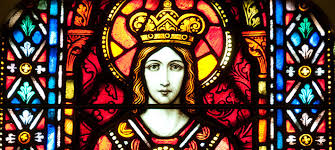Saint Margaret of Scotland, born around 1045, stands as a pivotal figure in the history of Christianity in Scotland. Her life represents not merely a personal journey of faith but a transformative narrative that influenced both ecclesiastical and secular domains. As a queen, she fostered religious reform, established numerous institutions, and left an enduring legacy that solidified her status as the patron saint of Scotland.
Early Life and Spiritual Formation
Margaret was born into the royal family of England, the daughter of Edward the Exile and Agatha, a noblewoman of possibly German origin. After her father’s death, Margaret’s family fled to Hungary, where she spent her formative years before returning to England. This upbringing in a royal household imbued her with a sense of duty and a commitment to her faith. From an early age, Margaret exhibited deep religious convictions, engaging in prayer and charitable acts, setting the foundation for her future as a queen and a saint.
Marriage to Malcolm III
In 1070, Margaret married Malcolm III, the King of Scotland. This union was significant, not only politically, as it united the Anglo-Saxon lineage with the royal blood of Scotland but also spiritually. Margaret brought with her a vision of Christendom that was both inclusive and reformative. She sought to strengthen the Christian faith in Scotland while also aligning its practices more closely with those of the Roman Catholic Church, which had been struggling against various local traditions.
Christian Life and Teachings
Saint Margaret’s Christian life was characterized by her piety, humility, and commitment to social justice. She practiced daily prayer, participated in the sacraments, and lived a life of asceticism. Her teachings emphasized the need for personal spirituality coupled with social responsibility. Margaret believed that one’s faith should manifest through acts of kindness and community service. She established numerous churches and monasteries, most notably at Iona and Dunfermline, which served as centers for education and spiritual growth.
Her commitment to reforming the Scottish Church is notable. Margaret worked tirelessly to eliminate the practices that she deemed inconsistent with the teachings of the Catholic Church. She introduced the Roman liturgy and stressed the importance of adhering to the rules of the Church. She encouraged the clergy to live lives of holiness and service, emphasizing that their role was to shepherd their communities.
Contributions to the Church and Society
Margaret’s influence extended beyond merely the ecclesiastical realm; she was a significant social reformer. She implemented a variety of charitable initiatives, establishing homes for the poor and feeding the hungry. Her dedication to the welfare of her subjects earned her admiration and respect. This connection to her people underscored her belief in the Christian imperative to serve others.
Her queenship was marked by a profound understanding of the interrelation between faith and governance. By promoting religious tolerance and social equity, she sought to transform the cultural landscape of Scotland. This vision brought her into conflict with some of Scotland’s nobility, who were resistant to her reforms, but her steadfastness often prevailed due to her influence as queen
Legacy and Canonization
Saint Margaret died on November 16, 1093, shortly after the death of her husband, Malcolm. It is said that she was deeply devastated by her husband’s loss, which led to her own decline in health. Following her death, her legacy spread throughout Scotland. She was canonized by Pope Innocent IV in 1250, with her feast day celebrated on November 16.
Margaret’s contribution to Christianity in Scotland remains evident today. Many churches throughout the country have been dedicated to her memory, and her teachings continue to inspire acts of charity and piety among Scots. She symbolizes the integration of faith with the governance of the realm, representing an early example of how personal faith can translate into effective leadership
Saint Margaret of Scotland, with her strong Christian convictions, ardent dedication to charity, and passionate commitment to church reform, exemplifies a unique blend of spirituality and leadership. Her life and teachings serve as a guiding light, reminding us that true faith is not only a personal journey but also a communal obligation to uplift and serve others. As Scotland’s patron saint, her legacy of kindness, reform, and devoutness continues to inspire generations.
Dr Denny Devassykutty MBBS MD



